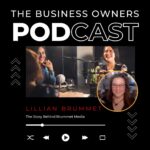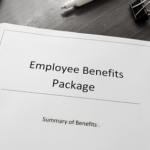Resilience is a hot topic because we’ve all needed it. It’s not something you just pick up; it can be cultivated. It’s an essential leadership framework.
I interviewed author and fellow leadership expert Jennifer Eggers on my podcast and was mesmerised by her tales of resilience. She’s had more than her fair share of setbacks. How does one person cope with so much devastation?

Her perspective on resilience is refreshing. She asserts that resilience is a framework we can develop. And the time to develop it is before we really need it.
Resilience itself is characterised by these three things (Eggers quotes Diane Coutu on this):
-
A firm grasp on reality (we need to confront the brutal facts)
-
A deep belief that what you’re doing is meaningful
-
The ability to improvise
Before we develop frameworks, we need to explore our leadership mindset
In her book, Resilience: It’s not about bouncing back: How leaders and organizations can build resilience before disruption hits, Eggers and her co-author Cynthia Barlow contend that resilience is a function of our mindset: our authenticity and our attitude. We need to interrogate our thinking filters (our values and beliefs) to understand our perspective.
One of the best suggestions in the book is to choose the belief “life is hard”. I found this shocking at first. They suggest that it’s a good choice not because it’s true, but because it’s smart. If we believe life is hard, it prepares us to buckle down and do the work. It encourages us to confront reality, choose our responses, and stay out of playing a victim mindset (whose refrain is ‘life is not fair’.)
The resilience leadership framework unpacked
Here it is, the Resilience Framework:
-
Mindset: our authenticity and attitude
-
Choices: our purpose and our definition of success
-
Core Beliefs: our sense of ‘knowing’ in something bigger than ourselves.
The book does a beautiful job of asking questions and guiding the reader through reflection to get your own answers, so I won’t repeat it all here.
I will, however, offer some additional thoughts to flesh out even more the idea of resilience.
Leadership effectiveness is not a solo activity. To lead is to be in communion with others
Resilience is something we process and metabolise on our own at first. How do we make sense of the situation? How do we move through it to be stronger on the other side of it?
It feels like a solo journey. And yet we do best in the company of others. To share a hug, a laugh, or a quiet moment makes all of life’s hardness a little easier.
Who can you reach out to this week? What phone call/ email / text have you been putting off? A quick message is so uplifting for someone else. Be the human who lifts up other humans, and you will be lifted in return.





















